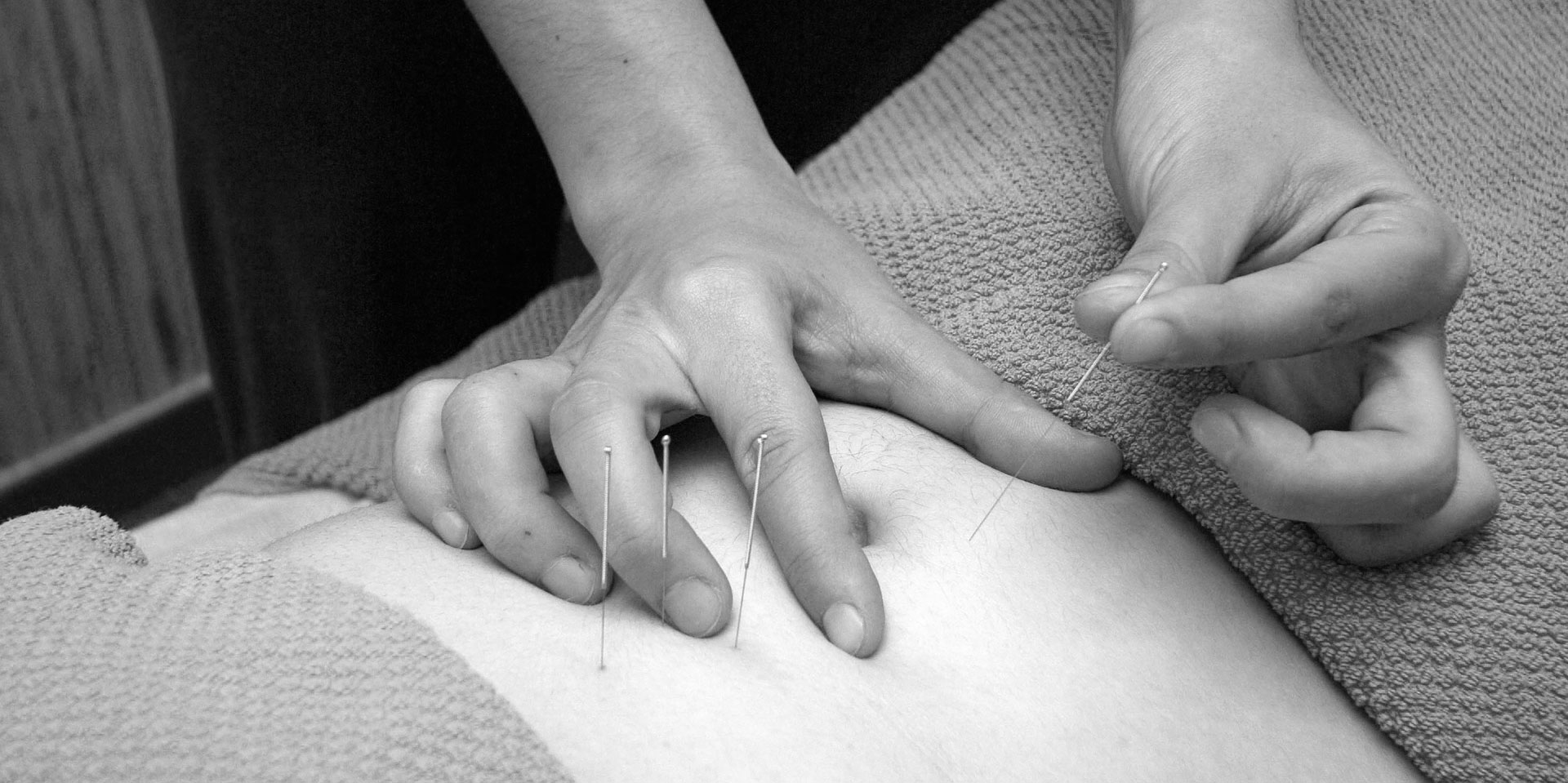Acupuncture originated in China, and is rooted in the theories of Traditional Chinese Medicine. This system discovered a whole network of energy lines throughout the whole body, which are called meridians or channels. Along these meridians are acupoints, each of which has a particular effect upon the body’s energies.

As part of your acupuncture session, the acupuncturist will take a full case history of not only your main concerns. But also all aspects of your health and lifestyle. They will also look at your tongue and take your pulse on both hands in order to collect more information on the how the energy is flowing through the various meridians; before making a decision on which acupoints to use.
Very fine needles are then inserted into a number of points on the body. Some may be selected far from the area that is currently bother you. For example, in cases of migraine the needles are often placed in the feet or hands!
These needles are then generally left in place for an average of 20 minutes. Although some people may require a little more or less time depending on their individual situation. The acupuncturist will check your pulse during the session to assess the effectiveness of the treatment.
Generally, the needles are not painful, but some sensations of tingling, warmth or achiness can be experienced. This is usually an indication of your body responding to the acupuncture, and often they are short lasting. However, if you are concerned any point during the session, you can tell your acupuncturist who will be able to make any changes to your treatment as appropriate.
In many cases, a course of acupuncture sessions is required, and your acupuncturist will discuss this with you at your first session. Once symptoms have improved, many people chose to continue receiving acupuncture every 6-8 weeks, or 4 times a year at the end of each season as a way to maintain their wellbeing.
The benefits of acupuncture
The benefits of acupuncture are not limited to physical ailments, such as back pain, or headaches/migraine, but it can work at an emotional and spiritual level, helping to reduce menopausal symptoms, sleep problems, anxiety, depression or stress and help create a sense of relaxation and wellbeing.
For more information on acupuncture, please visit: https://www.acupuncture.org.uk/